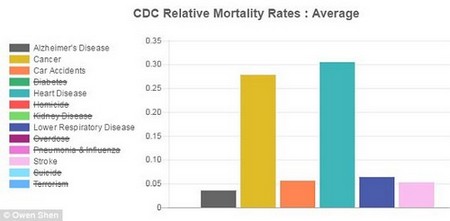To help those of us in need, we caught up with Dr Steve Alder, Consultant Neurologist at Re:Cognition Health to reveal the ultimate step-by-step guide for migraine management.
Known to suffer from the odd agonising migraine? You are far from alone. Migraine is one of the biggest causes of work absenteeism in the UK, costing the economy over £2.25 billion per year with 25 million lost days of work. It is estimated to cost the NHS £150million per year in prescription medication.
Ranked globally as the seventh most disabling disease, migraine is the least publicly funded neurological illnesses in respect to its economic impact. And, surprise surprise, a woman is three times more likely to suffer with migraines than a man. All of this begs the question, what actually is a migraine and what on earth is being done to help us deal with them?
If you’re lucky enough to have never experienced a migraine before, they are essentially a severe, throbbing headache that usually comes with other symptoms including nausea, vomiting and sensitivity to light and sound. The worst part is that the symptoms of a migraine can last anywhere from a few hours through to days.
Be kind to your body
As with most health issues, the chances of a migraine coming on can be substantially reduced if you look after yourself. Dr Alder advises: “Decreasing stress, increasing sleep, reducing alcohol intake, drinking at least two litres of water per day and reviewing diet can help improve and ultimately eliminate the onset of migraine.”
Besides general mental and physical care-taking, certain non-drug therapies have been seen to treat patients. “Many people have success with non-drug complementary therapies such a chiropractic, acupuncture and cranial therapy,” says Dr Alder.

Record your experiences
When it comes to any health issue, this is a great thing to do. Jotting down your symptoms and experiences and keeping them on file will make life a whole lot easier for you when it comes to visiting the GP or any kind of healthcare professions.
Dr Adler suggests recording the following factors:
- Dates
- Pain intensity (1-10)
- Location of pain
- Weather (e.g. humidity, cold or hot temperatures, wind changes in the weather)
- Type of pain
- Duration – number of hours / days
- Symptoms and changes in symptoms throughout the period (vomiting, noise / light sensitivity, restricted vision ability to perform tasks e.g. not able to walk, work, restricted vision etc.)
- Menstrual cycle (if applicable)
Keeping a diary of your symptoms is not only a great way to show an expert exactly what you’re experiencing, it also gives you the opportunity to spot any triggers and work around them.
As well as taking note of your symptoms, it is also worth jotting down a basic food diary, advises Dr Adler.
“Food intolerances as well as allergies and dietary habits such as dehydration, fasting and skipping meals can trigger the onset of migraines. Common offenders include coffee, carbonated drinks, alcohol, citrus fruit, cheese, nuts and chocolate. Make a record of meal and snack times as well as quantities consumed.”
Be prepared
Before experiencing a migraine, it is normal for some people to experience an ‘aura’ which can include visual disturbances and sensations such a numbness and pins and needles. When you first experience the aura, it’s time to start preparing.
“When the aura is experienced it is advisable to be prepared in order to manage the migraine and reduce the symptoms. Preparation includes drinking water to stay hydrated, having medication to hand and organising sensory distractions such a having wet towels to soothe the head and sunglasses to avoid bright light,” says Dr Adler.
Look into medication
If your migraines are becoming too much to cope with, it’s important that you book an appointment with your GP and take along your notes. “GPs are able to prescribe medication and refer you to a neurologist or other medical expert if applicable. It is here where information such as the migraine and good diaries will assist in speeding up both diagnosis and referrals,” recommends Dr Adler.
Whilst there is currently no cure for migraine, extensive research is ongoing to understand more about treatments, cures and prevention. In the meantime, be sure to stock up on over-the-counter painkillers. However, if they don’t solve your issues, it could be time to discuss alternative medications with your GP.
Dr Adler says: “In most cases analgesics such as paracetamol and ibuprofen are successful in treating the pain induced by a migraine, but many people require stronger, more tailored prescriptive drugs. It is imperative the people affected by migraine seek medical advice to help manage the symptoms and make regular check-up appointments to review medication and management.”



